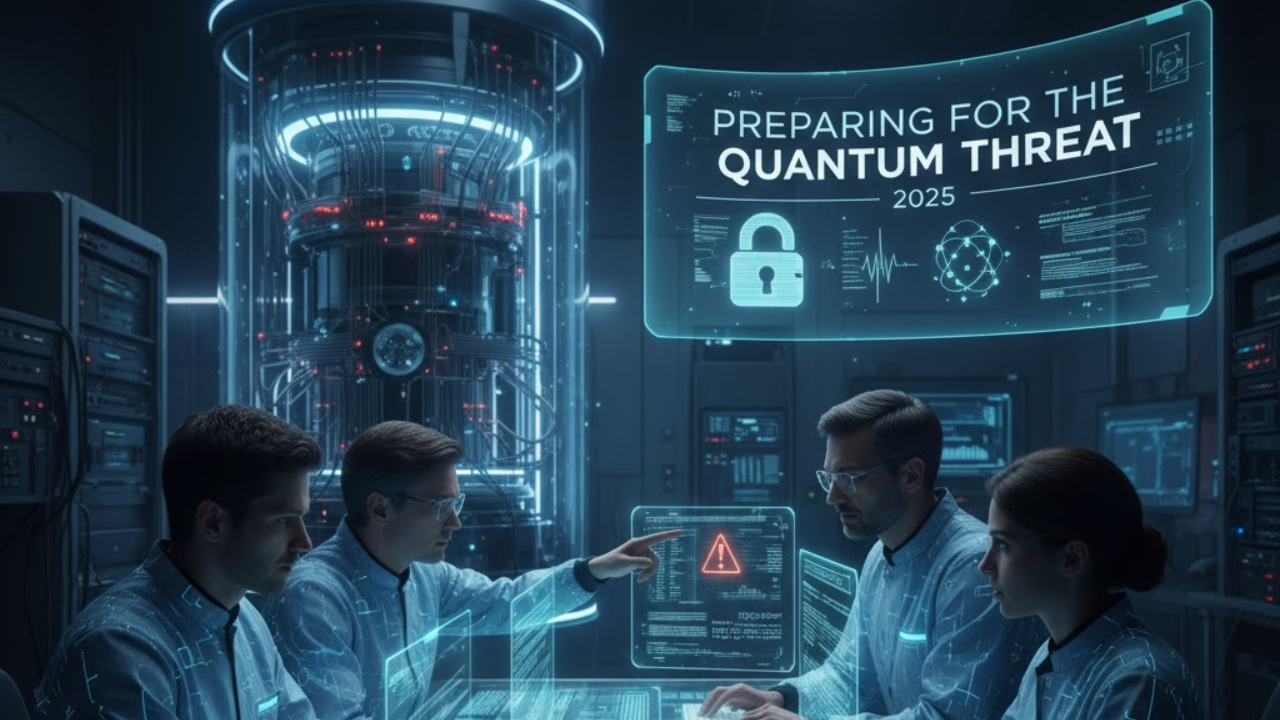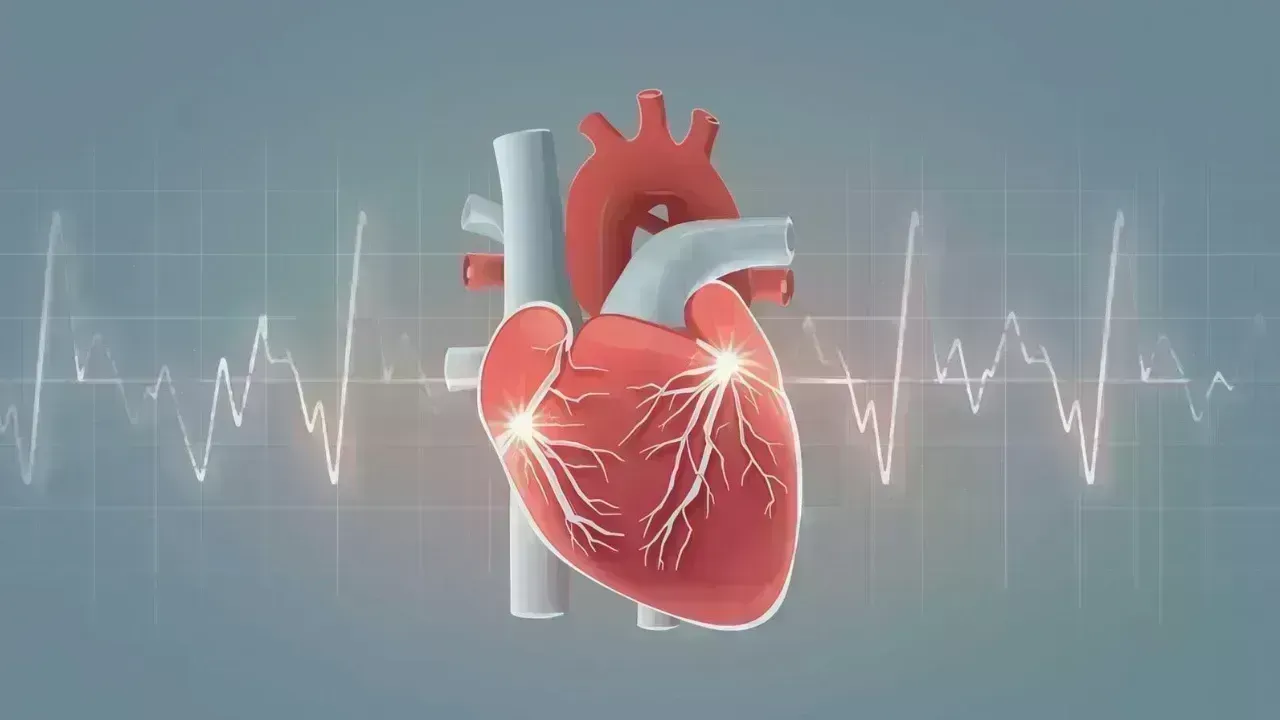
Post by : Naveen Mittal
For decades, our digital world has relied on cryptography — the invisible shield that protects online banking, confidential emails, and government data. But with quantum computing advancing faster than expected, that shield may soon crack.
The reason is simple: quantum computers can solve problems that are impossible for today’s machines, including the ones that secure modern encryption.
As 2025 unfolds, cybersecurity experts warn of a looming “quantum threat” — a future where quantum processors could decrypt sensitive data in minutes that would take classical computers millions of years to crack.
The global race is now on to develop Post-Quantum Cryptography (PQC) — the next generation of encryption designed to resist quantum attacks.
Most digital systems today rely on RSA and Elliptic Curve Cryptography (ECC), both based on mathematical problems that are hard for classical computers to solve — like factoring large prime numbers.
However, quantum computers use qubits that can process information in superposition (multiple states at once). With enough qubits and error correction, quantum systems could use Shor’s Algorithm to break RSA and ECC in hours.
That means:
Secure websites (HTTPS) could be decrypted.
Encrypted databases could be exposed.
Digital signatures and certificates could be forged.
Even past communications — if stored — could be retroactively decrypted once quantum computers mature.
This is known as the “harvest now, decrypt later” problem, where hackers steal encrypted data today and wait for quantum tech to catch up.
Post-Quantum Cryptography refers to new cryptographic algorithms that can withstand attacks from both classical and quantum computers.
Unlike quantum key distribution (which requires specialized hardware), PQC can run on existing digital systems — laptops, servers, and cloud infrastructure — making it practical and scalable.
In 2024, the U.S. National Institute of Standards and Technology (NIST) finalized its first four quantum-safe encryption standards, marking a huge step toward protecting the future internet.
Here are the four leading PQC algorithms chosen by NIST:
CRYSTALS-Kyber (Key Encapsulation Mechanism)
Protects against key-exchange attacks.
Based on lattice-based cryptography — currently the most promising family for quantum resistance.
CRYSTALS-Dilithium (Digital Signature Scheme)
Provides digital signatures immune to quantum attacks.
Falcon
Another lattice-based signature algorithm known for speed and compact size.
SPHINCS+
A stateless hash-based signature algorithm, providing an alternative in case lattice systems are compromised.
These algorithms are expected to replace RSA and ECC in government, financial, and defense systems by 2030.
While functional quantum computers capable of breaking encryption aren’t here yet, data security lifecycles span decades.
A financial institution, hospital, or government agency that stores sensitive data for 10+ years could be at risk if that data is stolen today. When quantum machines mature, those stolen files could be decrypted instantly.
That’s why major companies like Google, IBM, Cisco, and Microsoft have already begun testing PQC in their products and cloud platforms.
Early adoption gives organizations time to:
Audit encryption protocols and keys.
Transition gradually to PQC algorithms.
Maintain compliance with evolving data privacy laws.
Protect long-term assets from future quantum attacks.
Banking & Finance: Securing transactions, digital signatures, and blockchain networks against quantum decryption.
Healthcare: Protecting patient records, genetic data, and medical research from future data breaches.
Government & Military: Safeguarding national intelligence, communications, and critical infrastructure.
Cloud & IoT Security: Ensuring billions of connected devices remain safe from quantum-level hacks.
Blockchain & Web3: Developing quantum-resistant blockchains that can survive beyond the next computing revolution.
According to Allied Market Research, the post-quantum cryptography market is projected to reach $9.5 billion by 2032, growing at a CAGR of over 25%.
Governments and tech giants are already investing heavily. The U.S., China, and EU have launched quantum readiness programs to prepare national infrastructure for the shift.
Implementation complexity: Upgrading global encryption standards isn’t easy — legacy systems must adapt.
Performance trade-offs: Some PQC algorithms increase computational load and latency.
Standardization & compatibility: Cross-platform integration is still a work in progress.
Awareness gap: Many organizations remain unaware of quantum risk or underestimate its urgency.
However, experts agree that delaying the transition is far riskier than facing these challenges now.
The next 10 years will see a gradual but unstoppable migration to quantum-safe encryption.
Just as the internet transitioned from HTTP to HTTPS, organizations worldwide will adopt PQC-based standards for every form of digital security — from emails to cloud backups.
The end goal?
A quantum-resilient internet that remains secure, even when quantum computers become powerful enough to challenge today’s encryption.
The quantum threat isn’t science fiction anymore — it’s a ticking clock.
As quantum hardware evolves, so must our digital defenses. The shift to post-quantum cryptography is not just a technological upgrade; it’s a civilizational safeguard for the data-driven world.
Businesses that start preparing now won’t just survive the quantum revolution — they’ll lead it.










NBA Friday Recap: Powerhouse Wins for Miami, LA, Milwaukee, and Clippers
Miami, LA Lakers, Milwaukee, and Clippers triumphed in a thrilling NBA Friday, showcasing standout p

Doncic Shines with 49 Points in Lakers' 128-110 Victory over Timberwolves
Luka Doncic dazzles with 49 points as the Lakers secure a 128-110 win against the Timberwolves, show

Kings Triumph Over Jazz 105-104 with Last-Minute Sabonis Effort
The Sacramento Kings edged out the Utah Jazz 105-104, with Domantas Sabonis making the decisive shot

Argentina's Friendly Match Against India Delayed, New Date to be Announced
The friendly match between Argentina and India in Kochi has been postponed due to FIFA approval dela

Rohit and Kohli Conclude ODI Journeys in Australia with a Victory
Rohit Sharma and Virat Kohli bid adieu to Australian ODIs with a final win, forming a 168-run partne

George Russell's Wrestling Mask Antics at Mexican Grand Prix
George Russell donned a wrestling mask to enjoy the Mexican Grand Prix from the stands, providing a